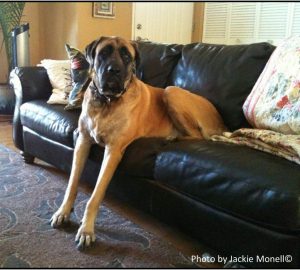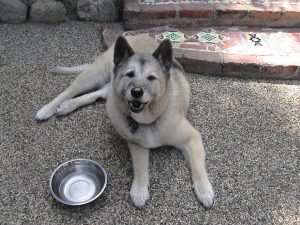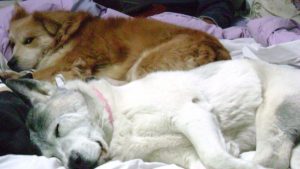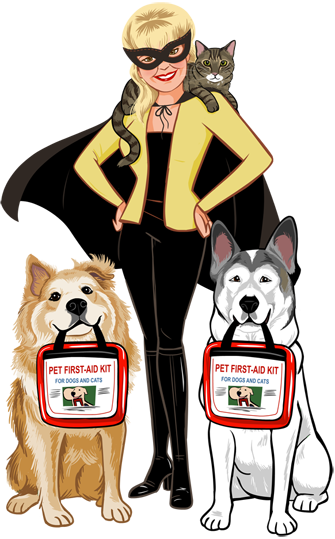Dogs, like humans, need sleep to maintain their health. Also like humans, those sleep needs change as they age.
Changing Sleep Needs
Puppies may sleep as many as 20 hours a day. Their bodies go through rapid changes and growth that take massive amounts of energy. Adult dogs average about 12 to 14 hours of sleep per day. The actual hours slept varies as small dogs sleep less than large dogs and sedentary dogs sleep more than active ones.
Dogs age more quickly than humans. While the saying that every one human year equals seven dog years isn’t quite accurate, it’s a good estimate. It’s safe to say that once your dog gets close to ten-years-old, he’s going to slow down. Older dogs lead a more sedentary lifestyle and, consequently, tend to sleep more than younger dogs. While they may not put in a solid 20 hours like a puppy, it wouldn’t be that unusual for an elderly dog to sleep 16 hours or more.
Dreaming and Other Aspects of Your Dog’s Sleep
Throughout the night, humans go through five sleep stages in each of five or six sleep cycles. Dogs pass through the same sleep stages, except they spend less time in each stage and have significantly shorter sleep cycles. For example, your dog’s typical sleep cycle only lasts about sixteen minutes before he wakes. You, on the other hand, sleep for seven to nine hours before you wake.

After being asleep for only a few minutes, your dog can enter rapid eye movement (REM) sleep and dream just like you do. You’ll be able to recognize this deep sleep stage by eye and leg movement and the occasional moan or bark. Don’t worry if your dog seems distressed while he sleeps, it’s only a dream.
How to Help Your Dog Get the Rest He Needs
The truth is dogs can sleep almost anywhere and, though your dog dreams like you, because he doesn’t spend as much time in deep sleep, he’s far easier to wake. That leaves his sleep schedule fairly flexible in following your own. However, there are things you can do to make sure your dog is getting the rest he needs. Try to:
-
Create a Comfortable Sleeping Area: Dog beds wear out so make sure the stuffing in your pet’s bed still offers him a comfortable place to sleep. If your dog shares your bed, make sure there’s room for everyone so he’s not getting kicked all night long. Make sure you have a waterproof mattress cover or pad on your bed because older dogs can lose bladder control just like humans.
-
Regularly Exercise Him: Exercise stimulates both your dog’s mind and body, which becomes even more important as he ages.
-
Buy Healthy Dog Food: Not all dog foods have the nutrients your dog needs. Talk to your vet to see what brands he recommends. Some dog foods are specially formulated for older dogs, but your vet will be able to tell you if the brand you have in mind will meet your dog’s specific needs.
You’ll recognize the signs of old age as your dog slows down and starts to gray around the muzzle. Rest assured that as long as you provide a comfortable place to sleep and plenty of food, exercise, and love, your dog will lead a long, full life.

Thanks to Ellie Porter, and Sleep Help, for this awesome PAWSome guest post












